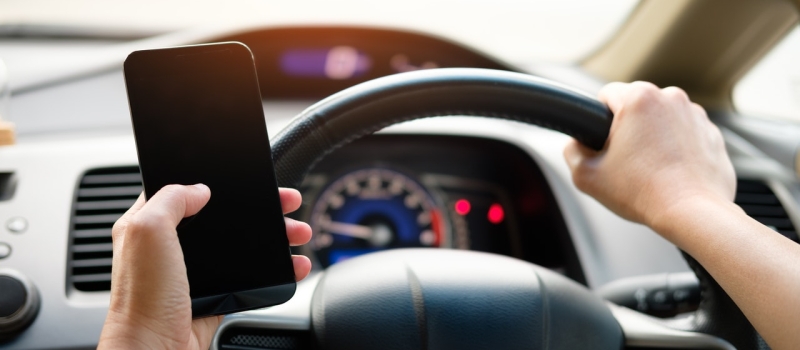The Very Real Dangers of Distracted Driving
Wednesday, April 21, 2021 Tiffany Bartz

Everyone is familiar with the statistics and dangers of driving while intoxicated or impaired but driving while distracted is just as dangerous. Nearly 7 people die each day and more than 700 people are injured due to distracted driving accidents. Most people will agree that driving while texting or talking on the phone are the top causes of distractions while driving, but there are other distractions that must be considered.
Not only should we avoid talking or texting on the phone while driving, but all the new technology modern vehicles are equipped with are also distractions. Most states have handheld bans, and drivers believe that they are making safe choices by using hands-free devices. The reality is that the human brain cannot do two things at the same time. It is nearly impossible to read a book and have a conversation at the same time, so why do we think it is safe to talk on a hands-free device, program the radio or GPS and drive at the same time?
The reality is that drivers talking on phones can miss up to 50% of their driving environments, including pedestrians and red lights. A study completed by AAA showed that people are distracted up to 27 seconds after they send a voice to text. It has been shown that people sending a voice-to-text are even more distracted than talking on the phone. They are mentally distracted by composing the message and visually distracted by common autocorrect errors. Additionally, the myriad of technology that is on the center consoles keeps drivers’ eyes off the roads. The odds of a crash doubles if you take your eyes off the road for more than two seconds. Sending or reading a text takes your eyes off the road for an average of 5 seconds and at 55 mph that is the equivalent to driving the entire length of a football field.
Copilots or back seat drivers have rights too. A passenger’s life is in the hands of the driver. Passengers can be an asset to the driver. Even if they are not old enough to drive, they are an extra set of eyes and ears to help keep a look out for oncoming traffic and dangerous situations on and off the road. They can also help prevent distractions for the driver by operating the radio, GPS and ventilation. If you are a passenger and feel the driver is distracted, is doing something dangerous or you see a dangerous situation speak up.
Avoid distracted driving by turning off your phone or silencing alerts, pre-programming your trip on GPS, make sure your mirrors, ventilation and radios are adjusted before you enter the roadway. Once you are on the road, keep your eyes on the road, your hands on the wheel and your mind on driving. Everyone has the right to go home safely, including passengers and other drivers on the road.




